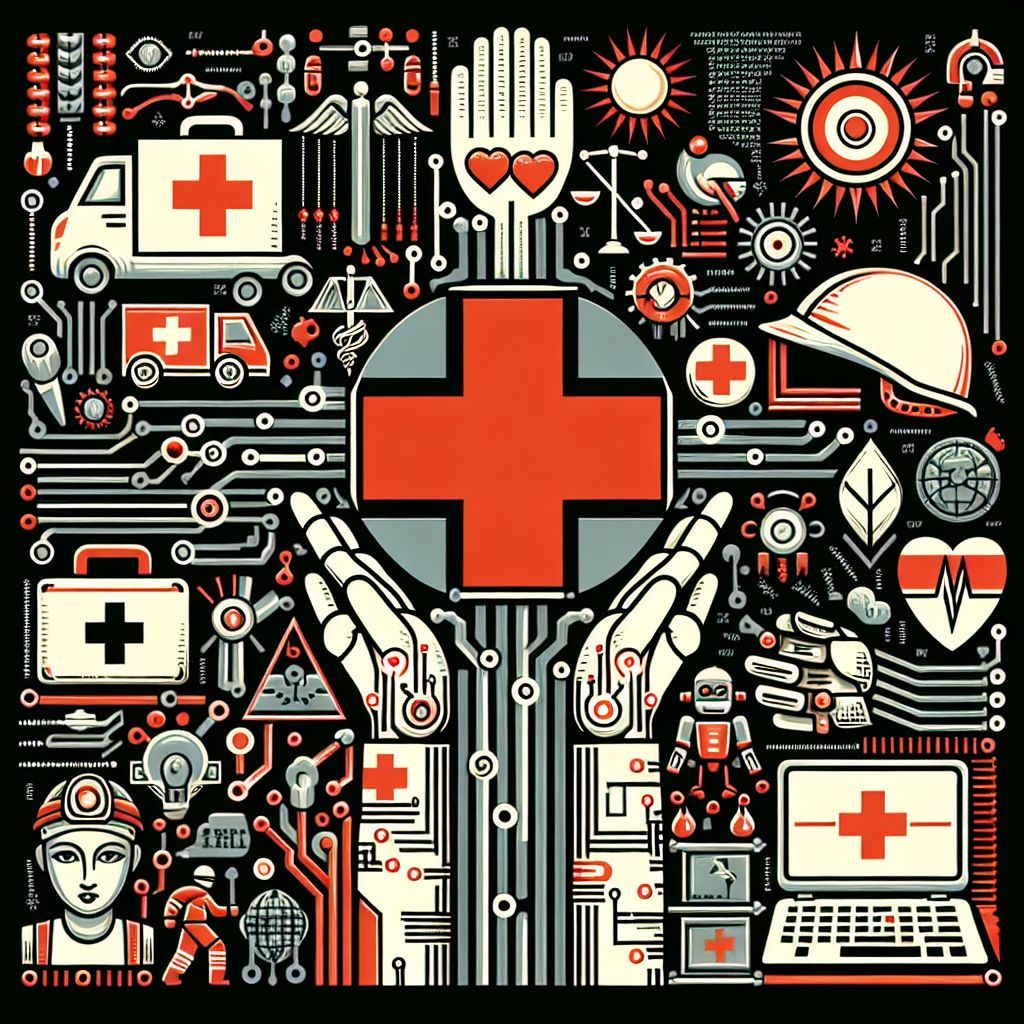Artificial intelligence (AI) has transformed various industries, including disaster response and rehabilitation. AI has the potential to greatly improve the efficiency and effectiveness of disaster response efforts, as well as aid in the rehabilitation of affected communities. However, the use of AI in these contexts raises ethical concerns that must be carefully considered.
One of the main ethical concerns surrounding the use of AI in disaster response and rehabilitation is the potential for bias in decision-making. AI systems are only as good as the data they are trained on, and if that data is biased in any way, the AI system will also produce biased results. This can have serious consequences in disaster response situations, where decisions need to be made quickly and accurately.
Another ethical concern is the issue of transparency and accountability. AI systems can be complex and difficult to understand, making it hard for humans to understand how decisions are being made. This lack of transparency can make it difficult to hold AI systems accountable for their actions, especially in high-stakes situations like disaster response.
Additionally, there are concerns about privacy and data security when using AI in disaster response and rehabilitation. AI systems often require large amounts of data to operate effectively, which can raise privacy concerns for individuals affected by disasters. There is also the risk of data breaches or misuse of data, which can have serious consequences for individuals and communities.
Despite these ethical concerns, AI also has the potential to greatly benefit disaster response and rehabilitation efforts. AI systems can analyze large amounts of data quickly and accurately, helping to identify areas of need and allocate resources more effectively. AI can also help to predict and prevent future disasters, by analyzing data and identifying patterns that humans may not be able to see.
One example of the ethical use of AI in disaster response is the use of AI-powered drones to assess damage in the aftermath of a disaster. These drones can quickly and accurately survey affected areas, providing crucial information to first responders and aid organizations. This can help to speed up the response efforts and ensure that resources are allocated where they are needed most.
Another example is the use of AI in predicting and preparing for natural disasters. AI systems can analyze weather patterns, seismic data, and other factors to predict when and where disasters may occur. This information can help communities to prepare and plan for disasters, reducing the impact on lives and property.
To address the ethical concerns surrounding the use of AI in disaster response and rehabilitation, it is important to implement safeguards and oversight mechanisms. This can include ensuring that AI systems are transparent and explainable, so that humans can understand how decisions are being made. It is also important to ensure that data privacy and security measures are in place to protect individuals affected by disasters.
Frequently Asked Questions:
Q: How can bias in AI systems be addressed in disaster response and rehabilitation efforts?
A: Bias in AI systems can be addressed by ensuring that the data used to train these systems is diverse and representative of the population being served. It is also important to regularly audit and monitor AI systems to identify and correct any biases that may arise.
Q: How can transparency and accountability be ensured when using AI in disaster response?
A: Transparency and accountability can be ensured by making AI systems explainable and understandable to humans. This can include providing information on how decisions are being made and allowing for human oversight of AI systems.
Q: What are some examples of AI being used in disaster response and rehabilitation efforts?
A: Some examples of AI being used in disaster response include the use of AI-powered drones to assess damage, AI systems to predict and prepare for natural disasters, and AI systems to analyze data and allocate resources more effectively.
In conclusion, the use of AI in disaster response and rehabilitation has the potential to greatly improve the efficiency and effectiveness of these efforts. However, it is important to carefully consider the ethical implications of using AI in these contexts and to implement safeguards to address these concerns. By doing so, we can harness the power of AI to better respond to disasters and support the rehabilitation of affected communities.

